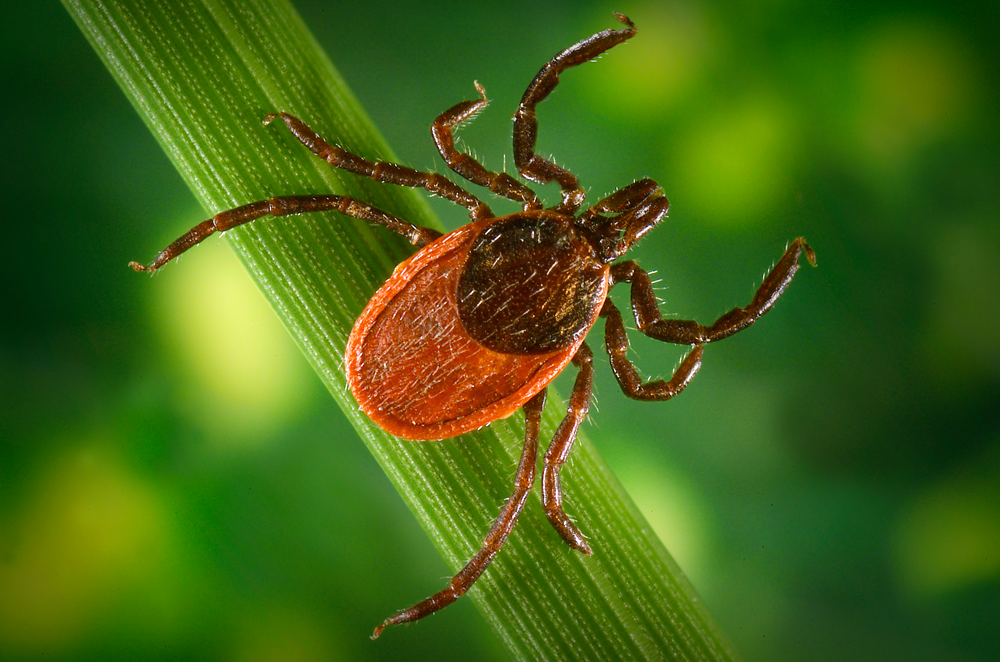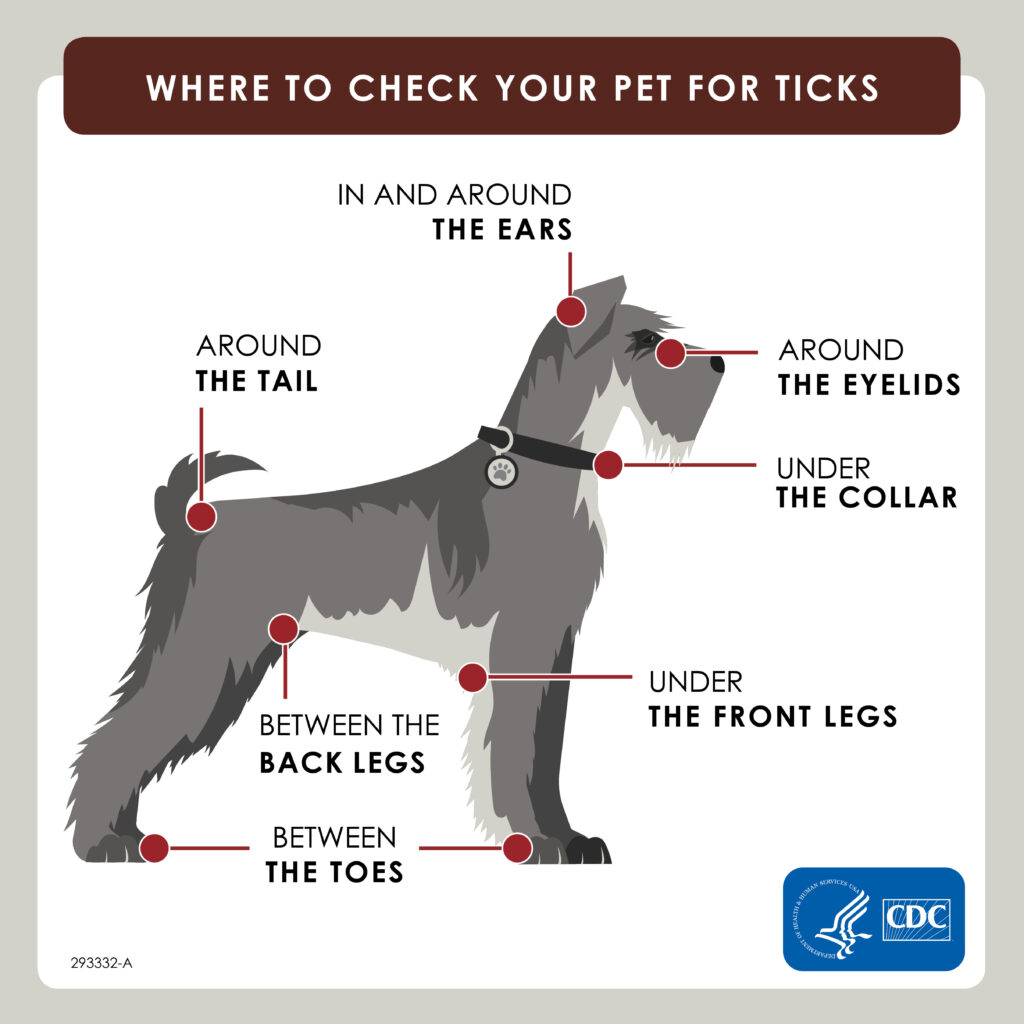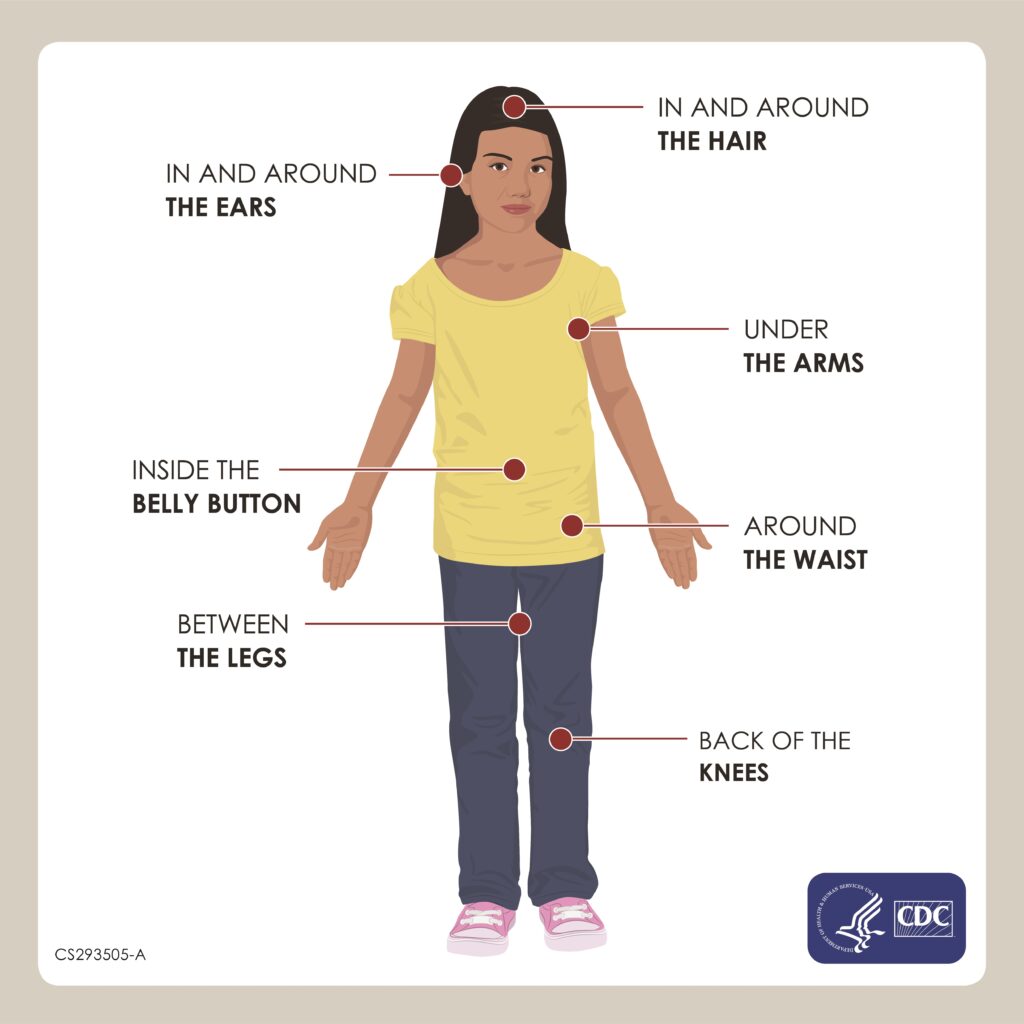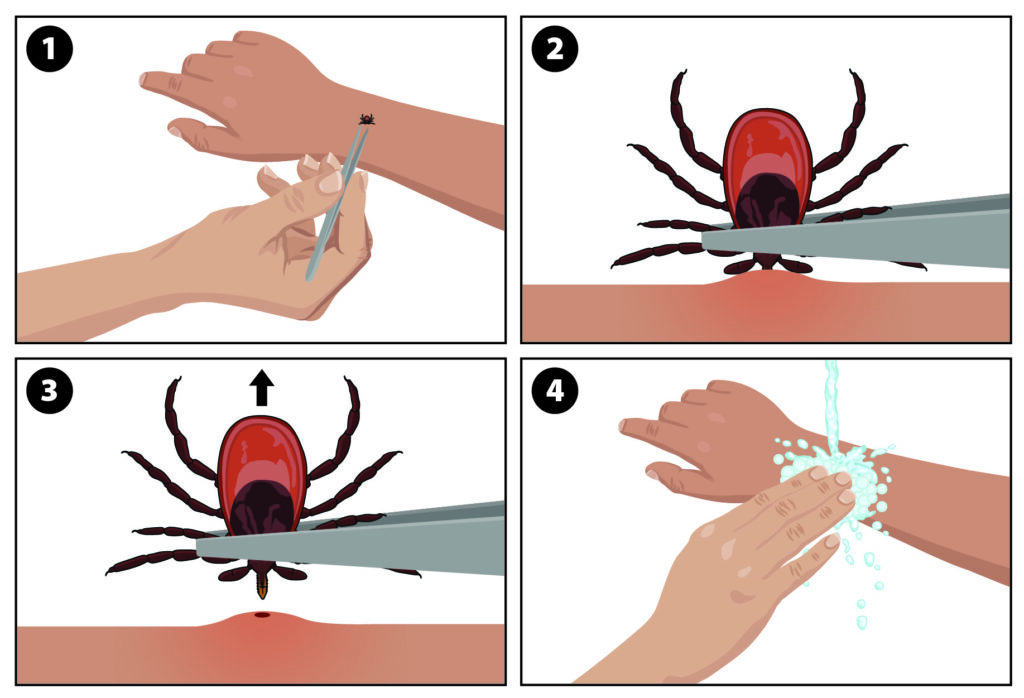July 01, 2024
Stop Tick Bites This Summer

Summer is here! Tick bites can happen year-round, but many people get tick bites in the warmer months when they are doing more outdoor activities such as hiking. Ticks are tiny bugs and most commonly found in damp, grassy, brushy, or wooded areas, including your own backyard. Ticks only attach when you come into direct contact with them — they cannot jump or fly.
Certain kinds of ticks can bite and make you sick with diseases such as Lyme disease and Powassan virus. You can learn more about different types of ticks at the Massachusetts web page on Tick-borne disease prevention.
Below are tips on tick bite prevention and what to do if you find a tick.
Tick bite prevention tips:
- Check yourself for ticks once a day. Remember to check your children and pets, too. Checking is the single most important thing you can do!
- Use repellents with an EPA-registered active ingredient; always follow the directions on the label.
- Wear light-colored clothing to be able to see ticks more easily. When it’s not too hot outside, tuck shirts into pants and pants into socks to cover gaps in your clothing where ticks can get in.
- Don’t spend a lot of time in potentially tick-infested habitats such as tall grass and shrubs.
- Shower soon after being outdoors. Showering may help wash off unattached ticks and it is a good opportunity to do a tick check.
- Stick to main pathways and the center of trails when hiking.
- Pets that spend time outdoors are exposed to ticks, too, and may bring ticks back inside. Talk to your veterinarian about the best ways to protect your animals from ticks and tick-borne disease.


What to do if you find a tick on you or a loved one:
- If you find a tick, don’t panic.
- Use tweezers and grab as close to the skin as possible, pulling directly upwards without twisting. This ensures the tick is completely removed to prevent infection. The CDC has more information on how to remove a tick. See illustration below.
- Talk to your doctor if you (or a loved one) develop a rash where you were bitten or experience symptoms such as fever, headache, fatigue, or sore and aching muscles.

